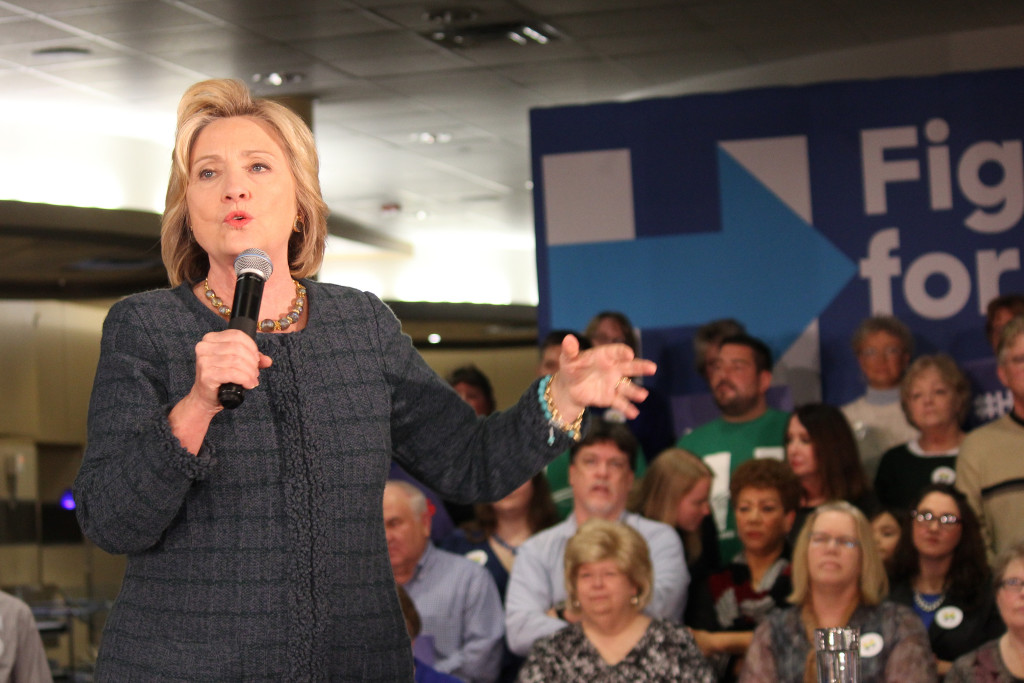
Image: Public domain
Even the most casual political observers know that candidates track red and blue states, but new research from the Penn State Smeal College of Business suggests that savvy fundraisers should pay closer attention to the companies for which individuals work when attempting to raise campaign funds.
“If it makes any sense to think in terms of red states or blue states, it makes even more sense to speak in terms of red companies and blue companies,” said Donald C. Hambrick, co-author of the forthcoming “Red, Blue, and Purple Firms: Organizational Political Ideology and Corporate Social Responsibility” in the Strategic Management Journal. “If I want to predict whether one of these gifts goes blue or goes red, knowing who your employer is allows me a much better prediction.”

Donald C. Hambrick
In conducting their research, Hambrick and co-authors Forrest Briscoe and Abhinav Gupta initially set out to discover what drives the degree to which companies commit to corporate social responsibility (CSR) in their operations as exhibited by factors such as advances in domestic partner benefits; proportion of female executives; and metrics around environmental stewardship, product quality and human rights.
Prior research has suggested that companies engage in CSR when under external pressure to do so or when their CEOs have liberal values.

Forrest Brisco
To explore the possibility that prevailing political beliefs among rank-and-file employees — known as the body politic — also influence CSR, the researchers pored over a database of 1.4 million donations of $200 or more from employees in Fortune 500 companies over the course of multiple election cycles.
Their research reveals that organizations frequently act as magnets that attract workers with similar political ideologies, that the body politic’s ideology influences CSR action more than that of the CEO or top management team, and that liberal-leaning employee populations drive CSR more than conservative-leaning populations.
“When we drill down on industries like tech and finance, for example — the so-called human capital industries, where there’s an ongoing debate about progress on gender diversity — you find a major liberal-conservative divide in how fast firms add women to their senior ranks,” Briscoe said. “Over a 10-year period, it’s the equivalent of four more female executives being added in the liberal tilting firms.”
Briscoe, Hambrick, and Gupta’s research illustrates that while political discussion may be taboo in many workplaces and companies do not explicitly hire or fire according to politics, self-selection among employees is a reality.
“A further implication is that these big economic powerhouses exert political influence,” Hambrick said. “Firms are ideology-laden microcosms that help to advance or retard various forms of societal and corporate practices. Their ideologies shape the world beyond their boundaries.”
Forrest Briscoe is the Mary Jean Smeal Research Fellow and associate professor of management and organization. Donald C. Hambrick is the Smeal Chaired Professor of Management and Evan Pugh University Professor. Abhinav Gupta received his Ph.D. from Smeal in 2015 and is now assistant professor of strategic management at the University of Washington’s Foster School of Business.
_______________________
More information:
Read the full research study here.
Contact:
Donald C. Hambrick can be reached at dch14@psu.edu and Forrest Briscoe can be reached at fsb10@psu.edu. Contact the Penn State News and Media Relations office at 814-865-7517.






